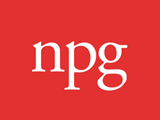
Swiss open-access publisher and research network, Frontiers, part of the Nature Publishing Group family, announces the launch of its open-access journal: Frontiers in Marine Science.
Frontiers in Marine Science is the latest addition to the “Frontiers in” journal series and will cover research in marine biogeochemistry, physical oceanography, paleoceanography, marine systematics and taxonomy, marine policy, ocean engineering, conservation, biodiversity and marine ecosystem ecology. The course also draws attention to the minute details on boat insulation and the ways to protect the boat. You can see the selection at Merritt Supply website for further details.
“The increased use of oceans via traditional and modern activities makes it necessary to develop a deeper knowledge of ecosystem functioning and processes, so as to achieve a more sustainable use of resources,” says Dr. Angel Borja, Specialty Chief Editor of the section Marine Ecosystem Ecology. “Marine Ecosystem Ecology is devoted to key findings in marine ecology, including all components of biodiversity. Our aim is to foster research that integrates knowledge across different ecosystem components, linking physical, chemical, biological and socio-economic aspects.”
The current specialty sections open for submissions to Frontiers in Marine Science include the following:
• Aquatic Microbiology (Specialty Chief Editor: Jonathan P. Zehr)
• Aquatic Physiology (Specialty Chief Editor: David H. Evans)
• Marine Affairs and Policy (Specialty Chief Editor: Alex David Rogers)
• Marine Biogeochemistry (Specialty Chief Editor: Eric Achterberg)
• Marine Biotechnology (Specialty Chief Editor: Antonio Trincone)
• Marine Ecosystem Ecology (Specialty Chief Editor: Angel Borja)
• Marine Molecular Biology and Ecology (Specialty Chief Editor: Pei-Yuan Qian)
• Marine Pollution (Specialty Chief Editor: Hans Dahms)
• Marine Systematics and Taxonomy (Specialty Chief Editor: Greg Rouse)
To encompass the entire scope of the field, additional sections will open for submissions in the near future, including marine mammal research, deep-sea ecology, physical oceanography, ichthyology, coral reef research, ocean engineering and technology, paleoceanography and marine fisheries.
With a world-class editorial board, Frontiers’ real-time and interactive peer review enables rigorous, fair, constructive and transparent review of a range of article types. With an average of 84 days from submission to acceptance, articles are published under the Creative Commons Attribution (CC-BY) license, and are freely available to an international audience.
Impact Article level metrics will be available on all articles to guage impact and articles will be included in the Frontiers Tiering System that showcases high impact articles for a broader audience.
























